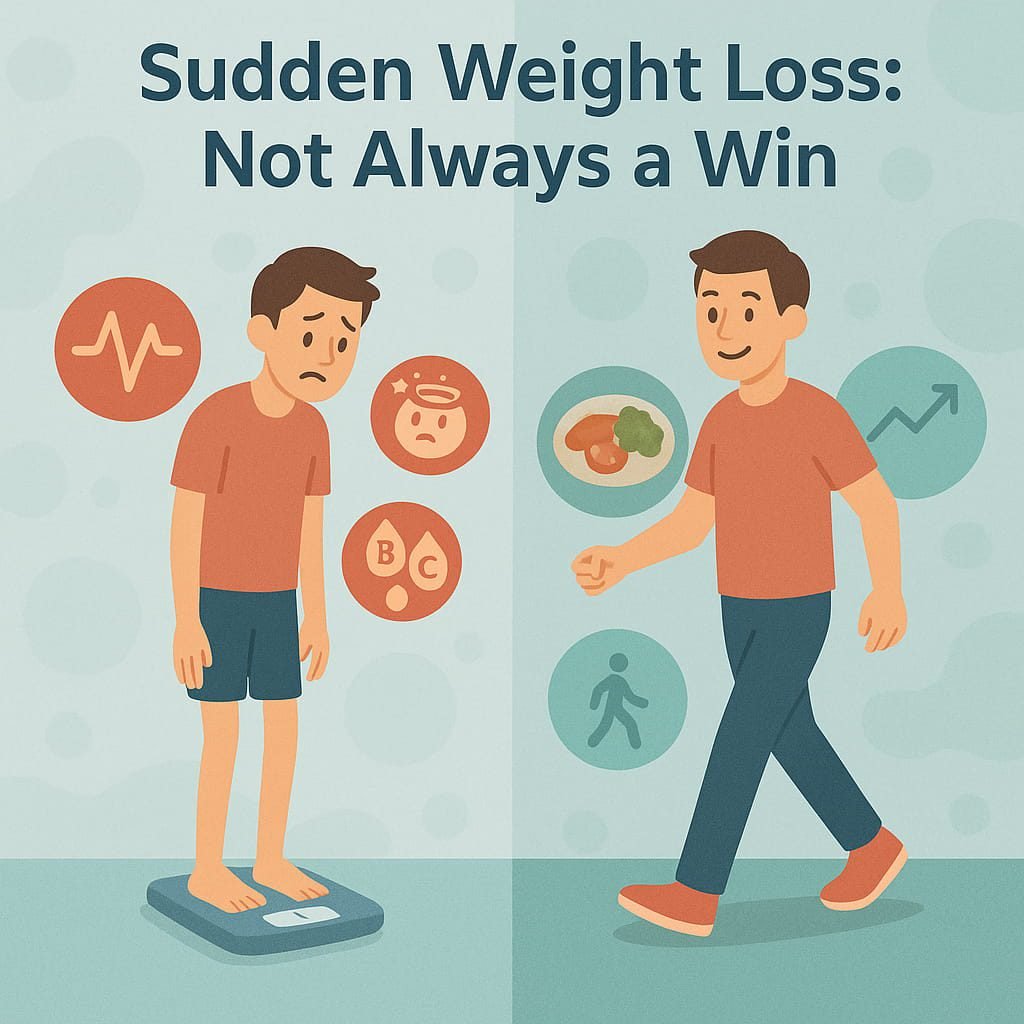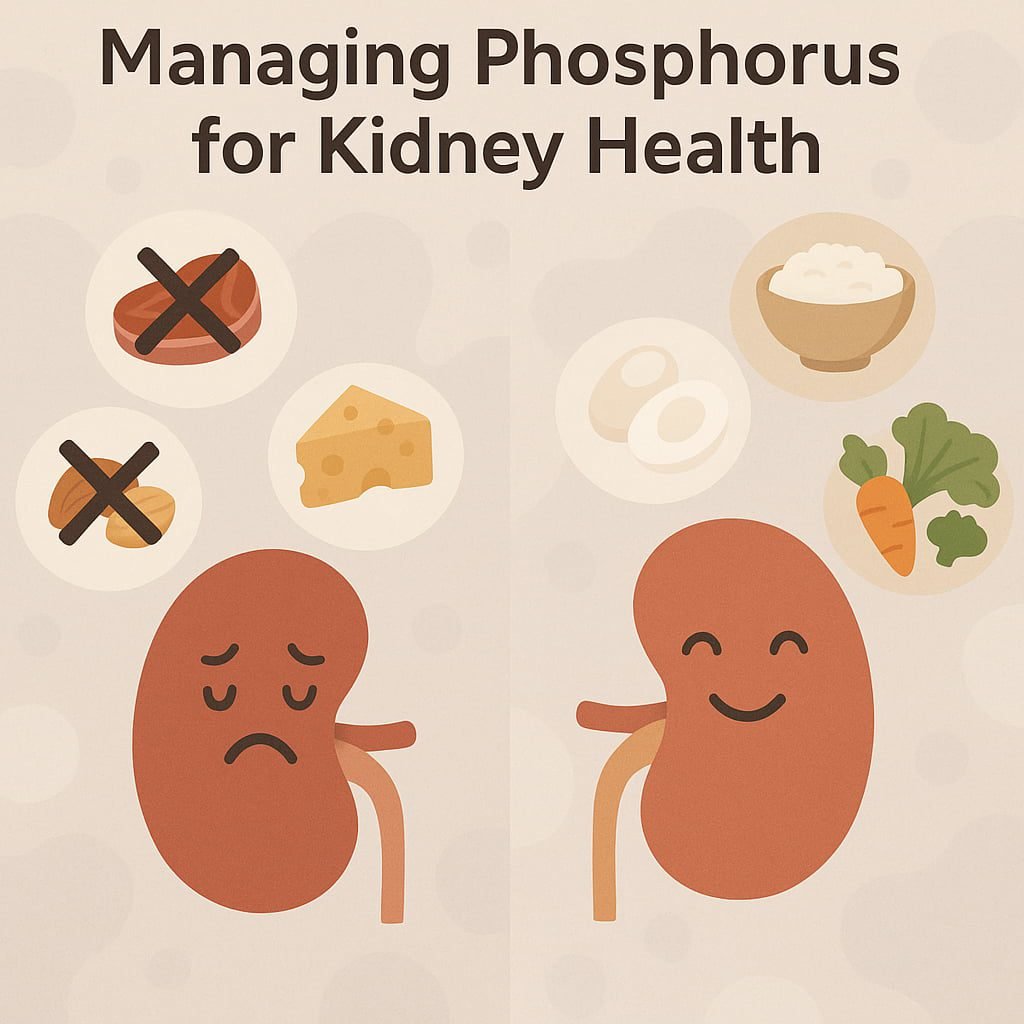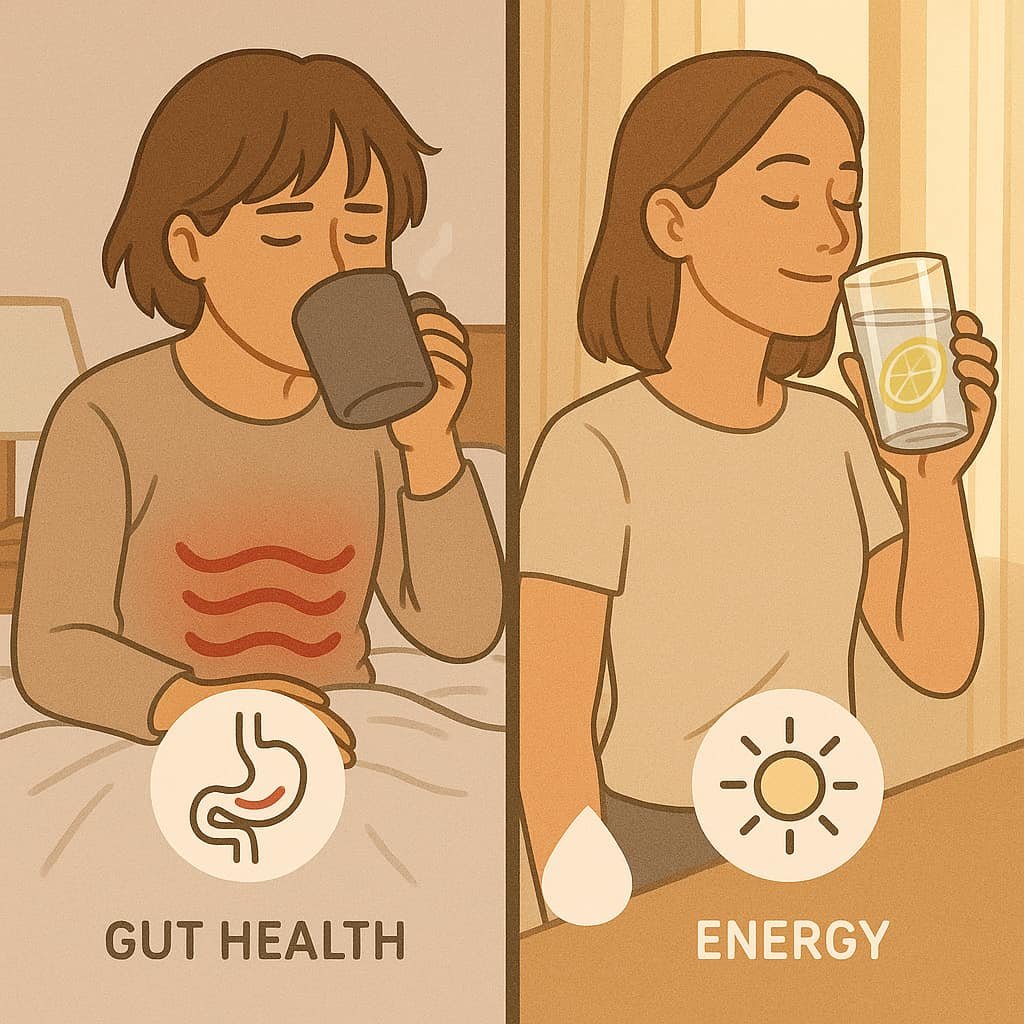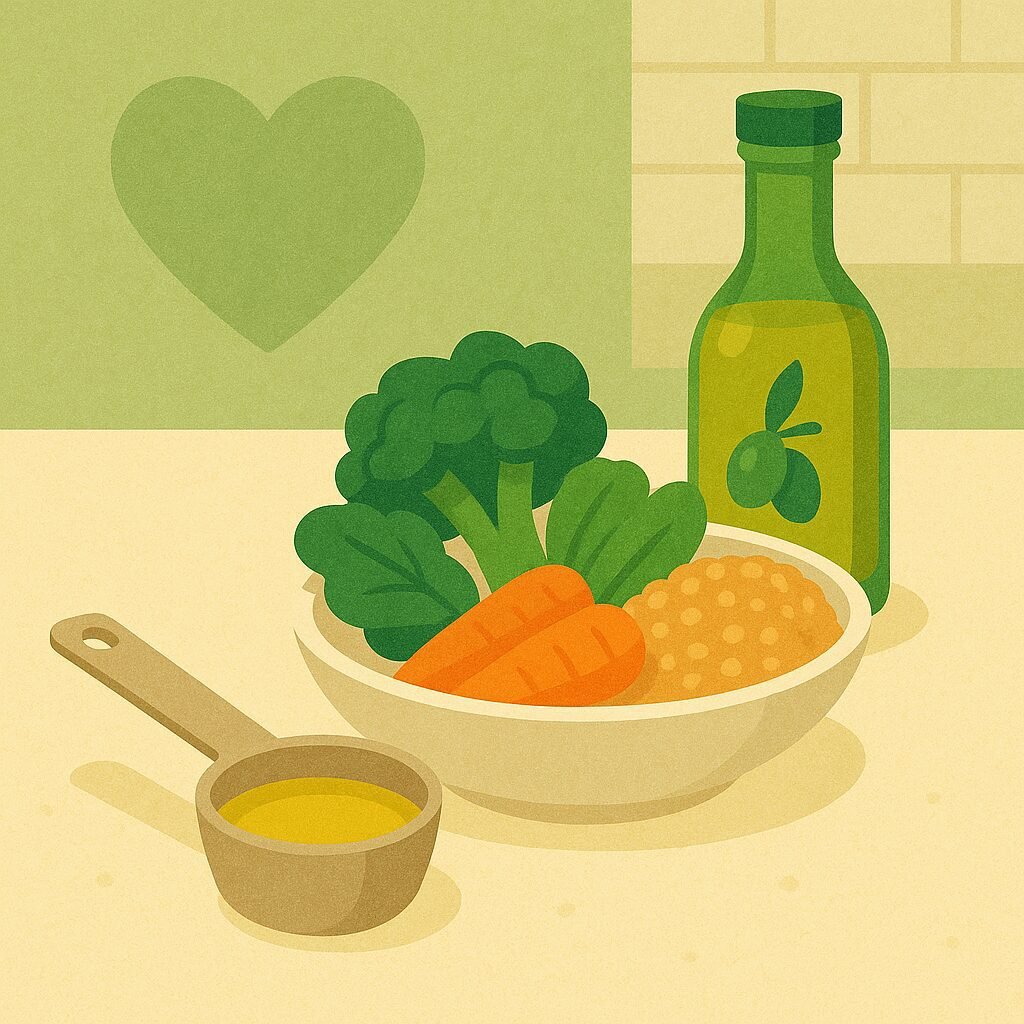We often celebrate weight loss, but what if it happens too quickly—or without trying at all?
While losing a few pounds with a proper diet and exercise plan is normal, sudden and unexplained weight loss can be a red flag for your health. It’s not just about appearance—your body might be sending a warning.
Why Sudden Weight Loss is a Concern
When weight drops too quickly, your body may not have time to adjust. This can cause:
- Nutrient deficiencies – Your body loses essential vitamins and minerals
- Muscle loss – Not just fat, but lean body mass too
- Dehydration – Especially if weight loss is rapid due to illness or crash diets
- Electrolyte imbalances – Which can affect your heart and nerves
- Irregular heartbeat – Sudden changes stress your cardiovascular system
- Extreme fatigue or weakness – Due to insufficient fuel for your body
Common Causes of Unexplained Weight Loss
If you’re not actively trying to lose weight, here are some potential medical causes:
- Thyroid disorders (like hyperthyroidism)
- Diabetes
- Chronic infections (like TB)
- Digestive issues (e.g., Crohn’s, celiac disease)
- Cancer
- Mental health conditions (like depression or anxiety)
That’s why sudden weight loss should never be ignored.
Healthy Weight Loss is Slow and Steady
If your goal is weight loss, do it right:
- Lose 0.5–1 kg (1–2 lbs) per week – that’s a healthy, sustainable pace
- Eat a nutrient-rich diet – Focus on protein, fiber, and healthy fats
- Stay hydrated
- Exercise regularly – Prioritize strength training and cardio
- Don’t skip meals or rely on crash diets – These can backfire
When to See a Doctor
You should consult a healthcare professional immediately if you:
- Lose more than 5% of your body weight in 6–12 months without trying
- Feel fatigued, dizzy, or weak
- Experience loss of appetite, ongoing digestive issues, or mood changes
Early medical advice can uncover underlying conditions and prevent more serious complications.
Conclusion
Sudden weight loss isn’t always a win—it can be a warning. From nutritional gaps to heart stress or hidden illness, your body needs balance, not just a lower number on the scale.
Whether you’re shedding kilos on purpose or the pounds are falling off unexpectedly, always prioritize your overall health. Slow, intentional weight loss with proper nutrition is the only safe path. And if your weight drops suddenly without explanation—don’t wait. Get checked.
In case of any related query related to nutrition or weight management book an appointment with Dt. Silky Mahajan .You can also send us a mail at info@foodsandnutrition.in or call on 7829999400. Follow us on facebook & instagram for latest updates.











